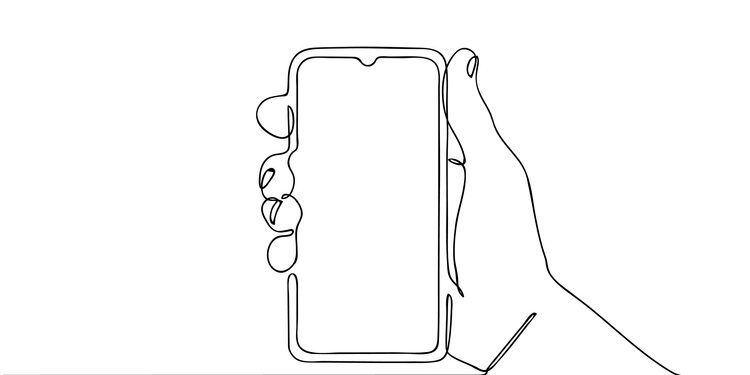I knew immediately by the hideous crunching sound that I had a problem…
My children and I had been enjoying a lively wrestling match with our 120-pound American Bulldog. We’d take turns playing tug-of-war with a beat up old rope until Captain Murphy – Murph as we call him – eventually dropped it, sending one of us flying into something or other.
It’s fun for all, but occasionally there is some collateral damage; lamps, plants, paintings, etc.
This time, that one of us was me, and my phone went flying from my jacket pocket onto the hard wooden floor of my living room.
When I looked down at my phone, the entire screen looked like one of those horror movies where the psychopath stares into the mirror and puts his fist through it. I knew then and there that it was time to replace or repair yet another phone.

I assume we've all been there at one time or another…
You have to act fast in these scenarios. Sometimes the damage isn’t bad enough to destroy the phone entirely, you just have to replace the screen. I did just that and made haste to the Verizon store (more on Verizon later), to see just how bad the damage was.
The friendly yet clearly overwhelmed new sales rep took me through a process I already knew too well. She kindly suggested that I try to repair the screen. I asked if they could take care of it then and there, but she responded that I would have to send it away for at least three days.
I laughed out loud. “Three days! What will I do in the meantime? Telegraph? Carrier pigeon? Snail mail? I need my phone!”
After quickly realizing how desperately insane that sounded, it dawned on me how completely addicted we are to constant communication. That little computer in your pocket can call people all over the world, provide you with any fact known to man and allow you to argue with millions of complete strangers at the drop of a hat?
But what I want to know is, how do you feel when you break or lose a phone?
Helpless, useless, like someone stranded on a desert island?
Judging by recent studies, it seems like people would be more comfortable losing a limb than their cell phone.
Asurion published a study back in 2019 that found that we Americans checked our smartphones an average of 96 times per day. That’s about once every ten minutes (when we’re not sleeping – which is a flaw in the study, as I’m damn sure people all over the country are waking up in the middle of the night and checking their feeds. It’s a wonder why people aren’t sleeping well these days.)
In any case, the company did a follow-up study that found that phone usage increased nearly four-fold to a whopping 352 times a day! That would mean the average American checks their phone about once every three minutes!
Essential Utilities?
I wouldn’t be hyperbolic in saying that phones are basically an essential utility these days. The same goes for internet access. I’m betting that if you asked the average person which item they would replace first, it would be their phone over their hot water heater.
That’s why I’m bullish on dividend-paying phone stocks with a broad swath of loyal customers.
Just look at the numbers again, from Zippia:
Smartphone and cellphone use is at an all-time high in the United States. Across the nation, more and more people depend on their smartphones to communicate, stay connected, and be informed daily. After extensive research, our data analysis team concluded:
- There are 294.15 million smartphone users in the United States.
- 85% of American adults use smartphones.
- Approximately 47% of web traffic in the U.S. originated from mobile devices.
These trends are only going to keep expanding, which provides us with some great dividend investments.
Verizon Communications (NYSE: VZ)
Let’s begin with my smashed phone stock. Verizon is not only one of the most reliable mobile networks but one of the most reliable dividend stocks. The company has offered a rising dividend for 18 consecutive years. It’s currently yielding an impressive 6.5% – one of the highest in the S&P 500.
Verizon also boasts the most loyal subscriber base among the big three, including T-Mobile and AT&T. That base is large: 143 million as of last year, for a 32% market share.
Here are some facts from the company’s last quarter filings:
- Total wireless service revenue of $18.8 billion, a 5.9 percent increase year over year.
- Postpaid phone net additions of 217,000, and retail postpaid net additions of 1,434,000, which was the best single quarter performance in seven years.
- Full-year 2022 retail postpaid net additions were 2,605,000, an increase of 23.2 percent from full-year 2021.
- This success was driven by strong fixed wireless momentum, tablet and wearables adoption and sequential improvement in phone net additions.
They have also rolled out their 5G network. Not only does the 5G revolution vastly improve signal access, download speeds, and the ability to watch as many TikTok videos as your craven heart desires.
5G has also given consumers compelling reasons to trade in their devices for pricer, updated ones and upgrade their data plans. While upgrading its wireless infrastructure will be costly and time consuming, the benefit for Verizon of users increasing their data consumption far outweighs the cost.
As mentioned above, the company's wireless service revenue rose nearly 6% last year. However, the past year has not been kind to shareholders, with the stock dropping around 25%
The stock is now sitting at 10-year lows – which may provide a nice long-term entry point when you consider their solid dividend history and yield.
Rivals T-Mobile are gaining some ground in the war of reliable wireless providers, however, given Verizon’s investments in other areas like prepaid and broadband, the churn rate on their wireless customers may be able to be offset.
In 2021, Verizon bought TracPhone, a company that specializes in value, prepaid phone services. The $7 billion deal gives Verizon access to 20 million subscribers at an average of $350. That gives them a big edge in the value phone market.
They’ve also grown their broadband division, which now serves over 7 million customers. Some other facts from Q4:
- Total broadband net additions of 416,000 was the best total broadband performance in over a decade, reflecting a strong demand for Fios and fixed wireless products.
- This includes 379,000 fixed wireless net additions, an increase of 37,000 fixed wireless net additions from third-quarter 2022.
- The company reported sequential quarterly net addition growth in fixed wireless throughout 2022. Full-year 2022 total broadband net additions were 1,290,000, an increase from 409,000 total broadband net additions in full-year 2021.
- 59,000 Fios Internet net additions.
So while they may slowly be losing subscribers in the wireless department to T-Mobile, they do have room to grow the other areas of their business.
Buy or Hold?
Make no mistake, Verizon didn’t have a good year, but I don’t feel it was as disastrous as the stock price currently indicates.
They are still the most trusted and reliable provider. In fact, the latest J.D. Power U.S. Wireless Network Quality Performance Study named Verizon as the most awarded brand for Wireless Network Quality – for the 30th consecutive year. Verizon has now earned more than 185 J.D. Power Awards for Network Quality, the most in the history of the study.
That trust also allows Verizon to charge a premium for its service. While competitors can undercut the price, customers will feel the drop off in performance that they don’t have to worry about with Verizon. The rumors of Verizon's demise have been greatly exaggerated.
I think at these depressed prices and considering the 6.5% dividend yield and strong history of dividend safety, Verizon will make for a solid investment for the foreseeable future.
Godspeed,

Jimmy Mengel
The Profit Sector
Follow me on Twitter @mengeled.













